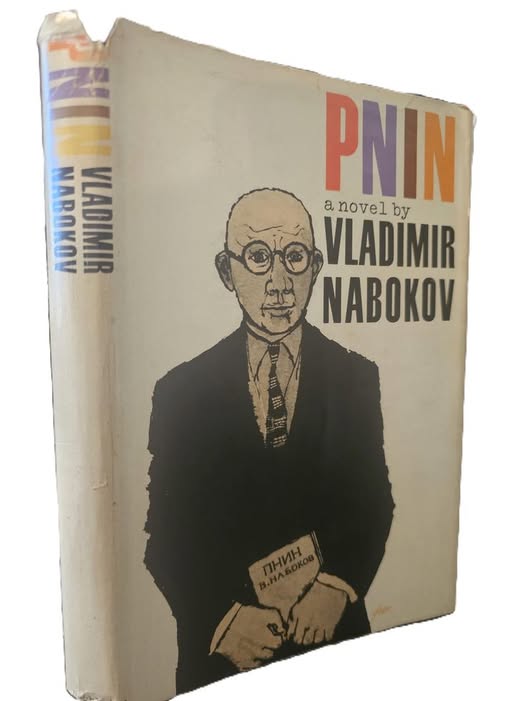Pnin (1957) is one of Vladimir Nabokov’s most beloved and humorous novels, telling the story of Timofey Pnin, a Russian émigré professor struggling to adapt to American academic life. Unlike Nabokov’s more complex works like Lolita or Pale Fire, Pnin is warm, tragicomic, and deeply human, though still rich with linguistic play and narrative mischief.
The novel follows Professor Pnin, a bumbling but endearing scholar teaching Russian at the fictional Waindell College. Each chapter is a self-contained episode in Pnin’s life, filled with misadventures: a disastrous lecture where he realizes he prepared the wrong notes, a failed attempt to host a faculty party, his struggles with English idioms (“washing his hands” of a problem), and his bittersweet memories of pre-revolutionary Russia and lost love. Despite his misfortunes, Pnin remains dignified, even heroic in his persistence.
The novel explores key themes such as the exile experience—Pnin is a displaced intellectual, caught between Russian nostalgia and American absurdity—and the challenges of language and miscommunication, as his mangled English leads to comic yet poignant moments. Memory and identity also play a crucial role, with flashbacks revealing his past in Russia, his lost love (Mira), and his uneasy present. Nabokov’s playful narration adds another layer, with an unnamed narrator (possibly Nabokov himself) intruding and casting doubt on Pnin’s reliability.
Nabokov employs several narrative tricks, including unreliable narration—the narrator, a fellow Russian émigré, seems to mock Pnin, though later chapters suggest Pnin may be more aware than he appears. The novel also moves non-chronologically, mimicking the way memory works, and includes metafictional hints, as the narrator’s identity (possibly a version of Nabokov) adds layers of irony.
Pnin is worth reading because it is both hilarious and heartbreaking—Pnin’s struggles are absurd yet deeply moving. Nabokov’s linguistic genius shines in Pnin’s malapropisms, and the novel offers a different, more tender side of Nabokov compared to his darker works.


